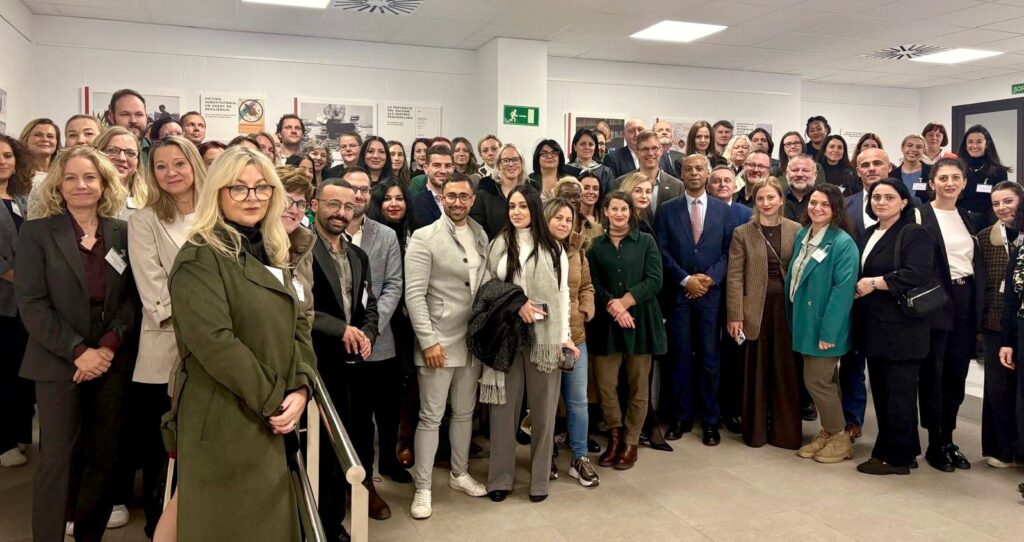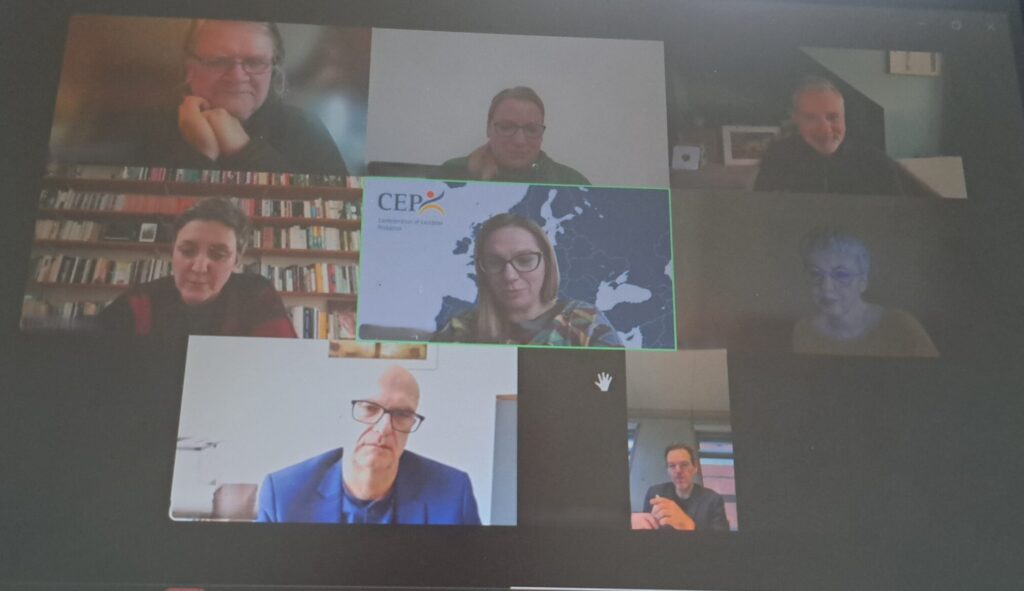Previous Article
News
Research Report on Promising Practices in building Probation Capacity
Steve Pitts and Leo Tigges are well-known to the CEP! Steve is CEP’s international Ambassador, Leo a former Secretary General. Both are honorary CEP members. Informed by international probation work pre and post “official” retirement, they report on a major project to understand promising practices in probation capacity building.
Their project took place against the background of remarkable expansion in Europe in probation provision in the past 20-25 years. Their research, greatly assisted by five detailed case studies (Albania, Georgia, Latvia, Poland and Romania), meetings with international bodies, and literature review, supported by an academic panel, shows a rich and diverse picture of how probation work in Europe is delivered and organised. Also clear is just how different the journeys of new jurisdictions have been in their development.
Their research demonstrates how probation development is influenced by a powerful and complex interplay between national and justice system context on the one hand (history, economy, penal traditions, standing of justice professionals, and so on) and international influences on the other – most especially standard setting by the Council of Europe, the EU accession process and bi and multi-lateral funding by the European Commission and other donors, professional international organisations (notably the CEP!), academic insight and research; understanding and working with these contexts is vital. Steve and Leo have analysed probation development by distinguishing several elements including the Who of probation (who were/are involved?), the Why (reasons to start probation work) and the What and How (what tasks were given priority and how were those tasks enabled)? Their full research report will be published shortly. In the meantime, this summary provides a preview!
As well as the fundamental importance of national and international context, the research offers insights into effective practices in building probation capacity. Factors include building networks, managing risks, flexibility, and significance of the professional approach and skills (technical and relational) of international experts able to combine knowledge exchange and inspiration – with the beneficiary in the “driving seat” – and assistance in developing “hard” products, tailored to need, such as strategy and implementation planning, communication plans, assessment systems, methodologies, training, and on occasion infrastructure support.
The authors, aware of ongoing need and effort to develop probation provision in many areas of the world, suggest 10 probation capacity building “success factors”. They also propose a model or “language” of capacity building, based on “Probation Domains and Enablers” – to support probation development globally. As well as success factors they identify potential risks informed by European experience, such as “net-widening”. They conclude with 5 recommendations for the international community embracing the role of supra-national organisations, professional associations and others with an interest in helping to ensure probation work achieves its full potential.
Following publication of the full report, Steve and Leo plan to meet with international organisations including the European Commission, Council of Europe, UNODC, and of course CEP, to discuss the outcomes and recommendations.
Read here the the preview of the report on Building Probation Building: What works?

Related News
Keep up to date with the latest developments, stories, and updates on probation from across Europe and beyond. Find relevant news and insights shaping the field today.
Recap

CEP-Europris, Probation in Europe
Recap of CEP and EuroPris Meeting with Catalan Authorities
04/12/2025
On 3 December, on the occasion of the joint CEP and EuroPris Workshop on Transition from Prison to Probation held at the Centre for Legal Studies and Judicial Training (CEJFE) in Barcelona, representatives from both international organisations met with senior officials from the Catalan Ministry of Justice to present their current work, reflect on ongoing cooperation, and explore shared priorities for future collaboration.
Recap

CEP-Europris
Workshop on Transition from Prison to Probation: Continuity of Care and Control
03/12/2025
On 2–3 December 2025, 71 participants from 22 European countries and jurisdictions attended the Workshop on Transition from Prison to Probation: Continuity of Care and Control, jointly organized by CEP and EuroPris. The two-day workshop aimed to explore strategies for ensuring continuity of care and control during the transition from prison to probation.
Recap

Research
Recap: online Expert Group meeting on Research
02/12/2025
On Friday, 28 November 2025, the annual meeting of the Expert Group on Research took place online.
Probation Journal

Domestic violence, Gender-based violence
New evaluation on whole family approach to domestic abuse
26/11/2025
Interventions Alliance has published a new evaluation of a Hub coordinated on behalf of police forces in the south of England, focused on tackling violence against women and children through a whole family approach. The Hub supports victims and perpetrators of domestic abuse and works across policing, health and social services.
New

Probation in Europe
New EU Judicial Training Strategy 2025-2030 adopted
26/11/2025
New updates from the European Commission highlight key priorities for judicial training in Europe, alongside new tools supporting transparency and access to data.
New

Gender-based violence
International Day for the Elimination of Violence Against Women and Girls
25/11/2025
Today, 25 November, marks the International Day for the Elimination of Violence Against Women and Girls. It is a global reminder, recognised by UNESCO and the wider international community, of the urgent need to prevent violence, support those affected by it, and strengthen collective action. The day also opens the 16 Days of Activism, a worldwide campaign that calls for sustained engagement to end all forms of violence against women and girls.
Subscribe to our bi-monthly email newsletter!
"*" indicates required fields
- Keep up to date with important probation developments and insights.

